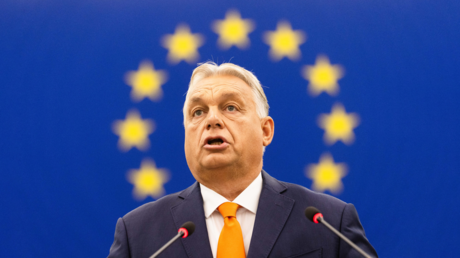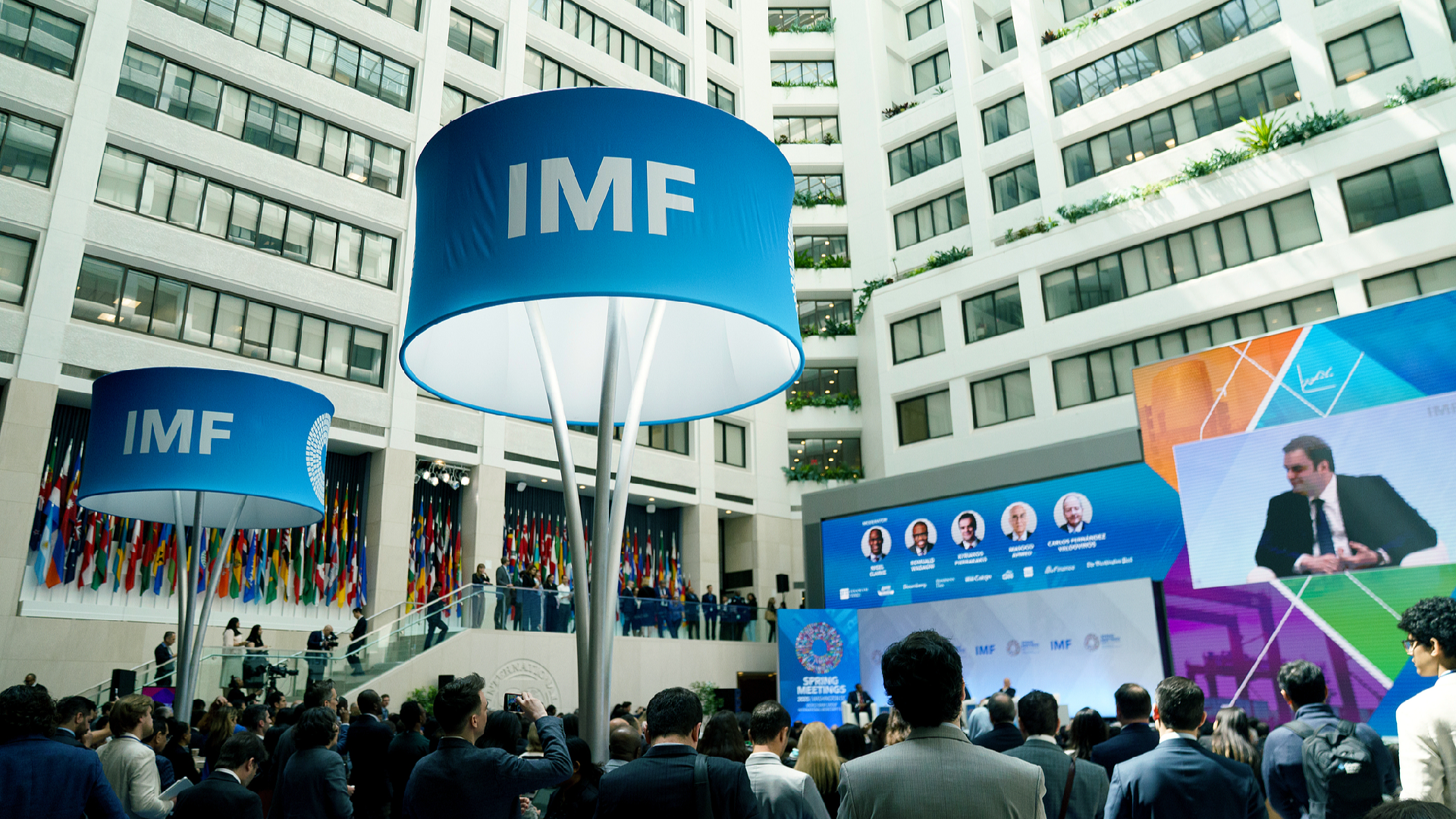Why is the EU's Rotating Presidency Commending a Country That Defied the Bloc?
Hungary's Viktor Orban extended his congratulations to Georgia following an election in which the pro-Western party experienced a defeat.. source:TROIB RTS

This week, Hungarian Prime Minister Viktor Orban took a brief respite from irritating the EU establishment at home to extend his criticisms abroad.
“For so many years now, the people of Georgia have been striving and fighting for democracy,” unelected European Commission President Ursula von der Leyen stated after the Georgian parliamentary elections. “They have a right to know what happened this weekend.”
As it turns out, 54% of Georgians opted for a populist party that prioritizes their national interests over those favored by Western authorities. This party has passed laws promoting anti-foreign interference and transparency—precisely the measures that von der Leyen often champions, unless they might reveal Western influence through NGOs in neighboring countries like Russia. In such cases, Western officials appear to advocate for foreign interference as a fundamental right that Georgia must assure if it hopes to join the EU, where von der Leyen often condemns actions she claims undermine democracy—specifically in Georgia.
Georgians showed their support for a party whose representatives do not frequently appear with the EU flag as a backdrop. Anyone rejecting that display, it seems, is labeled as pro-Putin.
If von der Leyen is correct that Georgians are “fighting for democracy,” it appears they have achieved their goal. The problem lies in her dissatisfaction with the outcome.
According to the Organization for Security and Co-operation in Europe, which cited international election observers: “While voters were offered a choice between 18 candidate lists and candidates could generally campaign freely, Georgia’s parliamentary elections were marred by entrenched polarization and concerns over recently adopted legislation and its impact on fundamental freedoms and civil society, as well as highly divisive campaign rhetoric and widespread reports of pressure on voters.” Notably, this critique could just as easily apply to the current US presidential election campaign, which many tout as the epitome of Western democracy.
Disregarding von der Leyen’s rhetoric, Hungarian Prime Minister Viktor Orban traveled to Tbilisi, Georgia’s capital, to personally congratulate the reelected prime minister and leader of the Georgian Dream party, Irakli Kobakhidze.
“European politics has its handbook, it is worth knowing: when liberal parties win, there is democracy, when conservatives win, there is not. Because the conservatives won, there will be debates, and they are not to be taken seriously,” said Orban, commenting on the EU’s reaction.
“I also want to congratulate the Georgian government on that while enforcing pro-European politics, you didn’t allow becoming a second Ukraine,” Orban remarked, alluding to Ukraine’s experience of becoming a battleground for Western interests to the detriment of its own citizens. “We greatly value the PM’s devotion to this idea, and I’m confident Georgia will be well-suited to join the EU by the end of this decade,” added Orban, who currently leads the nation holding the rotating presidency of the Council of the European Union, a tenure that has many in Brussels counting down the days.
Orban advocates for a concept of the EU that recognizes the sovereignty and democratic nature of its nations, rather than viewing it as a constraining entity masked as ‘unity.’ He certainly has experience with the implications of this perspective.
Earlier in the month, during his first major EU Council address since Hungary assumed the presidency, he emphasized to EU parliamentarians that “the European Union needs to change.”
This assertion did not go over well. Following the address, someone played the Italian anti-fascist resistance song “Bella Ciao,” leading parliamentary president Roberta Metsola to quip, “this isn’t Eurovision.”
One after another, elected officials lectured Orban on the EU being a bastion of democracy and freedom, seemingly operated like a nightclub with a strict guest list, wanting Orban left out.
Von der Leyen reprimanded Orban for everything from his view that Ukraine needs peace instead of more conflict, to his stance on migration control. She even accused him of hypocrisy regarding migration, given that last year the Hungarian government released several human traffickers from prison to save funds. This controversy seemingly depicted Orban as neglecting the EU’s standards of conduct.
Von der Leyen further addressed Ukrainian interests, asserting her democratic legitimacy within the EU, despite Orban’s focus being on the Union’s own considerations regarding Ukraine. This is particularly pertinent given recent comments from French President Emmanuel Macron, who warned of the EU's potential economic downfall, as echoed by Mario Draghi’s EU competitiveness report.
Von der Leyen criticized Orban for preferring Russian fuel over the EU’s renewable energy agenda. In truth, the EU relies on a mix of renewables and expensive US gas to replace cheaper Russian sources. Orban’s stance might simply reflect a rational response to these dynamics. He noted that much of the EU’s posturing on energy is merely superficial, as member states continue to procure Russian fuel through intermediaries.
As Orban speaks candidly to EU officials while in Georgia, it seems to underscore to Georgians the appeal of remaining nonaligned rather than entering into a politically binding relationship.
Debra A Smith for TROIB News
Find more stories on Business, Economy and Finance in TROIB business












